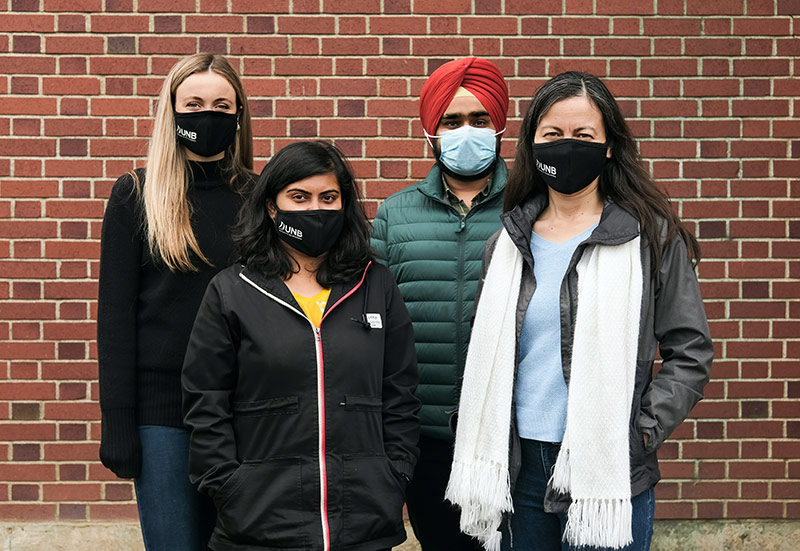NB-IRDT publishes preliminary results of COVID-19 recovery research
Author: UNB Newsroom
Posted on Dec 1, 2020
Category: UNB Fredericton , UNB Saint John

The New Brunswick Institute for Research, Data and Training has published preliminary results of its research into community resiliency in COVID-19 recovery, identifying which areas of the province may be at greater risk of negative outcomes.
The research, led by Dr. Sandra Magalhaes of the University of New Brunswick, examines COVID-19 risk indicators to support community planning and recovery efforts and better inform possible responses in the province.
By identifying the prevalence of six risk factors in each New Brunswick health council community, the study determined which communities may be more vulnerable to negative outcomes. The analysis generates community-level indicators that are relevant to COVID-19 pandemic planning and recovery efforts in New Brunswick by using population-level data provided by the provincial Department of Health.
“A large amount of uncertainty remains about how future months will unfold while New Brunswick’s communities continue to do their part to limit the spread of COVID-19,” says Dr. Magalhaes. “In bracing for future months, we aim to understand which groups may be more vulnerable to negative physical consequences of COVID-19 and may thus require additional resources and support in these challenging times.”
The research determined communities in northern New Brunswick may be more vulnerable based on three findings:
- Nearly 1 in every 5 adults have two or more relevant health conditions that increase the risk of negative outcomes associated with infection (ranging from 18-23%).
- They have a greater prevalence of people who have been acutely hospitalized for a mental health condition in the last 10 years (4-7%), which may require additional preventative intervention and support as the general Canadian public has seen worsening psychological well-being since the outbreak began, whereas in Fredericton, Saint John and Moncton it’s less than 3%.
- Older adults (65+) are living alone in at least 20-22% of houses, compared to around 15% in the urban cores of Fredericton and Moncton, which can have negative implications for feelings of social isolation or difficulty accessing essential services as physical distancing measures continue.
“Our team’s ability to leverage available research funding, capacity and infrastructure in New Brunswick is enabling us to make this important contribution to support evidence-informed planning efforts aimed at reducing negative impacts of COVID-19 and promoting resiliency across New Brunswick communities,” says Dr. Magalhaes.
This report is the first of two; the second, and final, report is expected to be published early 2021. The intention is for the first report to provide the opportunity for more informed discussions when engaging with key stakeholders to prioritize in the final release.
The project is one of 13 UNB-led studies that received funding from the New Brunswick Innovation Foundation and the New Brunswick Health Research Foundation in July to investigate the COVID-19 pandemic.
Media contact: Kelsey Pye
Photo: (L-R) Madeleine Gorman-Asal, Paramdeep Singh, Chandy Somayaji and Sandra Magalhaes, a research team at NB-IRDT studying COVID recovery in New Brunswick.
